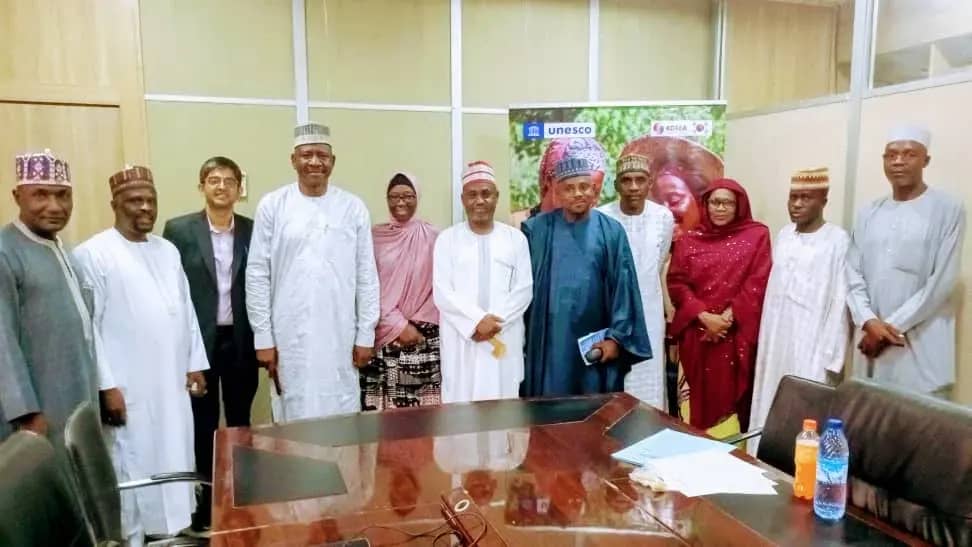
Iliyasu Abdullahi Bah
In a significant move to advance technical and vocational training in Northern Nigeria, the United Nations Educational, Scientific and Cultural Organization UNESCO, in partnership with the Republic of Korea, has announced a major educational support initiative for Kano State.
The project, formally launched on Thursday is designed to strengthen Technical and Vocational Education and Training TVET programs across the state. It aims to provide modern teaching equipment, enhanced curriculum development, and instructor training to improve the quality and relevance of vocational education offered to Kano youth.
The initiative reflects a shared commitment between UNESCO and the Korean government to support sustainable development through education, particularly in regions with high youth unemployment, by aligning training with local economic needs and global technological trends, the program seeks to equip young people in Kano with practical skills in high-demand fields such as renewable energy, information and communication technology ICT, agriculture mechanization, and artisan crafts.
Officials from UNESCO and the Korean International Cooperation Agency KOICA emphasized that the project will also focus on entrepreneurship and digital literacy, ensuring that graduates are not only job ready but also capable of creating their own opportunities in a competitive economy.
The Kano State Government has welcomed the intervention, noting that it aligns with its broader agenda to reduce unemployment and drive economic growth through skilled manpower development. The state Commissioner for Education described the initiative as “a timely boost that will empower our youth with relevant skills for self reliance and national development.”
This partnership is expected to serve as a model for similar collaborations in other parts of Nigeria and West Africa, supporting UNESCOs global mandate to foster inclusive and equitable quality education.
Kano, a major economic hub in northern Nigeria, has a significant youth population and a growing need for vocational skills to address unemployment and support economic diversification. Nigeria’s economy relies heavily on agriculture (24% of GDP) and services (49.7% of GDP), with high youth unemployment (9.6% for ages 15–24).
The BEAR III project emphasis on agro-processing, environmental skills, and entrepreneurship aligns with Kano economic needs, as the region is a center for agricultural trade and small-scale industries.
